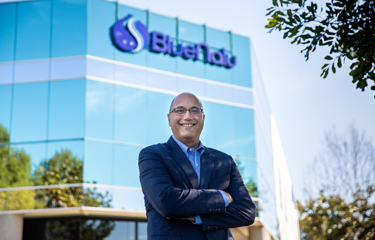San Diego, California, U.S.A.-based BlueNalu – a company developing cell-cultured seafood products – has announced the signing of two different memorandums of understanding (MoU) with Mitsubishi Corporation and Thai Union.
BlueNalu said the independent agreements are focused on market development strategies for the company’s cell-cultured products, “specifically in Asia, where there is high demand for quality seafood.” The company said its strategy is to partner with multinational companies like Thai Union and the Mitsubishi Corporation that have expertise in market research, regulatory affairs, product design and development, manufacturing, and sales and distribution to accelerate its roll-out of cell-cultured seafood products.
“We are excited by the collaborations with Mitsubishi Corporation and Thai Union, as these will help us to accelerate our pathway to commercialization and advance BlueNalu’s mission to provide the world with sustainable seafood options that could provide so many benefits for consumers, our ocean, and our planet,” BlueNalu President and CEO Lou Cooperhouse said in a release.
Thai Union already invested in BlueNalu during the company’s latest round of financing, which brought in USD 60 million (EUR 49.5 million) in funding. Other strategic investors in that investment round include Radicle Growth, Rich Products Corporation, and Agronomics.
The company is using the financing in part to build a larger cell-based seafood product development facility, which will result in a sixfold increase in space to over 38,000 square feet.
BlueNalu also entered into a partnership with South Korea-based Pulmuone in July 2020, with the similar intention of accelerating the company’s entrance into the Asian marketplace.
In addition to the partnerships, BlueNalu has also joined the Cellular Agriculture Study Group of the Center for Rulemaking Strategies at Tama University in Tokyo, a “consortium of professionals from academia, industry, and government regulatory agencies investigating pathways to bring cell-cultured foods to market in Japan.”
Partnering with other organizations is a big part of how BlueNalu plans to access markets more efficiently, Cooperhouse said.
“We recognized early on that our ability to make the biggest impact at BlueNalu will be in part due to collaborations with leading global organizations that can facilitate the quickest and most-efficient pathway to market possible, at the least possible cost,” he said. “We are keen to continue working with industry partners in Asia and other markets, and we are actively pursuing opportunities to create such relationships worldwide.”
The company has said its products will be in test markets in 2022, and global markets by the end of the decade.
Photo courtesy of BlueNalu







